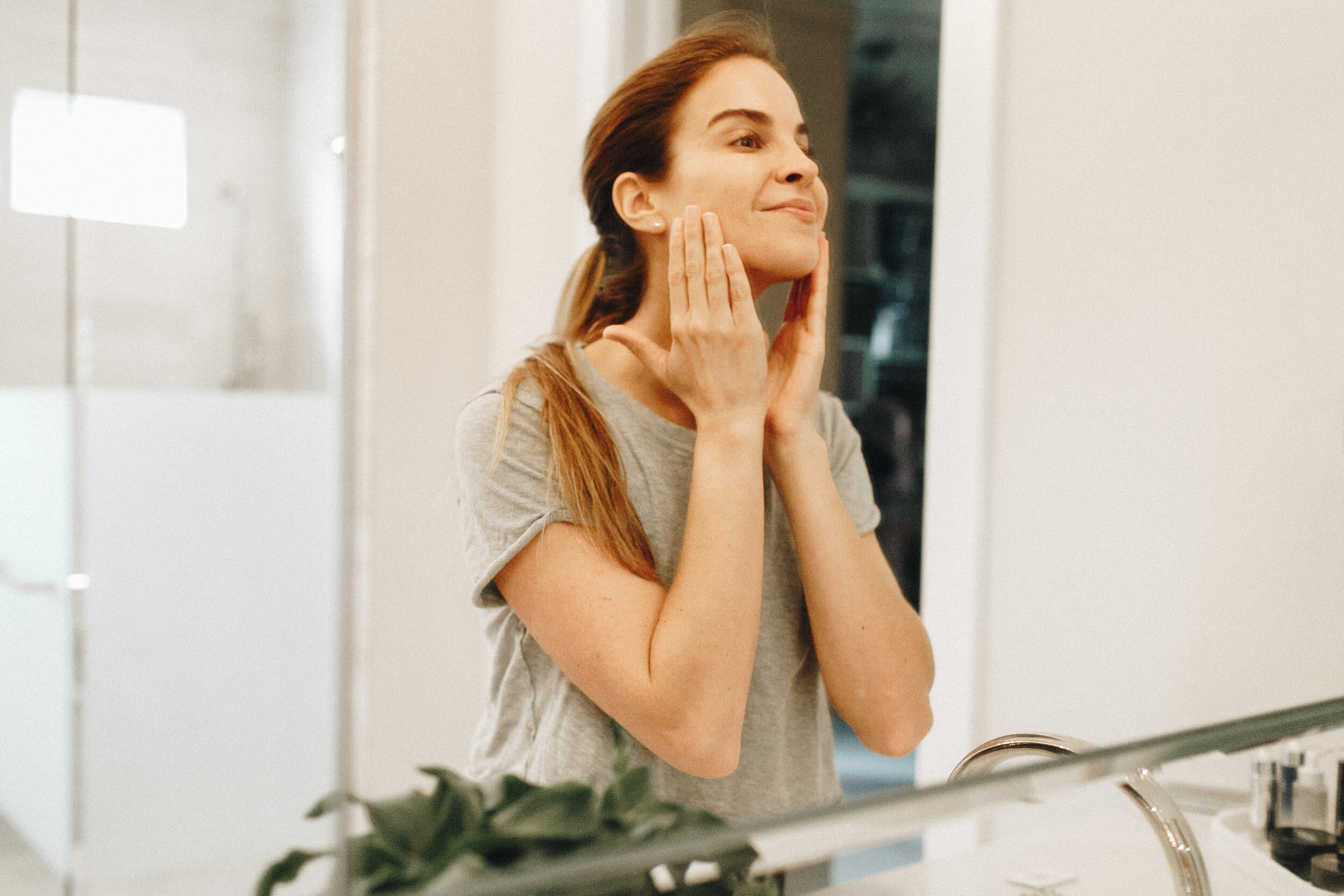What I Learned from a Skin Expert about Botox, Lasers, Retinol and Skin Care Routines
December 16, 2019
A little backstory on this topic: I became obsessed with skin care after battling with socially-crippling acne in my early 20s.
My experience with acne was borderline traumatic. It impacted my desire to socialize, my confidence, and my basic comfort level. To go from being clear, normal skin, to both cystic and rash-like acne–especially when I was starting my career in television news–was humbling to say the least. But it also inspired me to learn everything I could about healthy skin.
In addition to becoming a card-carrying product junkie, I’ve also sought out the advice of countless professionals over the years–both on the blog and on my podcast–and thought it was time for a quick roundup on some practical skin care advice. After interviewing tons of professionals, here are some expert tips on injectables, lasers, skin care routines, and more.
Expert Tips on Injectables, Laser and Skin Care Routines

Take It Easy with the Cleansing: You’re Probably Over-Washing Your Skin
Tenley Starr is a registered nurse and cosmetic injector based in California, and she’s also the founder of Starr Clinical Skin Care. I was so excited to have her on Episode 44 of my podcast (the first of a two-part interview I did with her), and one of the first things we dug into was skin care routines.
Tenley is the second skin care guru I’ve heard from in the past two months who says that washing your face once daily is enough.
I know I’ve written about this several times before–so excuse the broken record message–but guys, I so believe in this method.
Here’s why: Stripping your skin of its natural oils via cleansing disrupts the acid mantle, which is the protective barrier your skin naturally builds up over a short period of time to protect it from outside aggressors.
So when you’re cleansing away that protective barrier when you don’t really need to, you’re irritating your skin and perhaps causing more of the very issues you’re trying to prevent–acne, wrinkles, redness, etc.
This method won’t be for everyone, but it’s worth a try for most.
Unless you’re using incredibly rich creams at night that leave a film on your skin (like an overnight mask), or someone came and drew a Sharpie ‘stache on you, rinsing with water or even a gentle micellar water, then patting your skin dry should suffice in the morning.
After that apply your Vitamin C serum and SPF, and you should be good to go!
Everybody’s Doing It
…and by “it,” I mean Botox or other wrinkle-fighting injectables. And by “everybody,” of course I don’t mean everyone, but lots of women are dabbling!
Tenley and other professional injectors I’ve either been patients of, or talked to, say that many women are starting injectables in their 20s. At that age, women view it as a way to prevent certain lines and wrinkles from becoming very deep or etched into the skin.
Do it, or don’t… but do know that if you’re on the younger side and considering Botox, you’re certainly not alone! Expert tips on injectables can help!
Fight Spots the Right Way
Like Tenley said in Episode 46, dark spots or marks may appear the same on the outside, but they may be happening for very different reasons.
For example, there’s a big difference between hyperpigmentation–which Tenley says can be caused by a number of factors, including over-treating your skin with powerful ingredients, or even sun exposure–and melasma, which can happen as a result of a change in hormone levels (hello, pregnancy!) or other internal factors.
And the bottom line is, each should be treated with a different procedure or product. Tenley runs through what products and lasers are good for Melasma vs. hyperpigmentation in the episode, but the bottom line is:
If you have dark spots on your skin, make sure you see a skin professional to tell you what it is you’re dealing with, so s/he can choose the best procedure and product to treat it. Don’t go this one alone!
There’s a Reason Retinol is a Skin Care Classic
In interviews with skin care experts, you will hear most all of them suggest looking into retinol if you want to reverse or treat wrinkles.
There’s a reason why tons of skin care pros recommend this ingredient: It’s been extensively studied, and it works.
Another option, if you’re on the cleaner end of the beauty spectrum, is bakuchiol.
I’ve used, and loved, this ingredient in some of my skin care products; and I can say honestly that the results do mimic those of retinol, but take a lot longer to see. I had to use my bakuchiol regimen for about two months before I saw similar results to what I would get with retinol.
Everyone’s Routine Will Look Different
While there are some star ingredients that tons of skin care pros recommend, the bottom line is that you have to listen to your skin. If a product proves to be consistently irritating, it’s time to remove it from your routine, or ask a dermatologist or other skin care professional what’s happening.
But you shouldn’t be afraid to call in an expert. Whether it’s an expert facialist, a licensed injector or a dermatologist, it always pays to bring in the experts when it comes to the health and beauty of your skin.
Have a skin care tip you live by? What’s the best advice you’ve ever been given? Let me know in Comments below!
© 2022 WGT Designed by leche studio
PRIVACY & TERMS
CONNECT
NAVIGATE
Home
Blog
Work With Me
More From Us
Want to be the first to get the latest updates and news?
About
Podcast
Contact